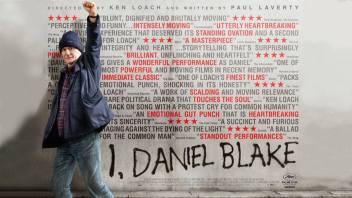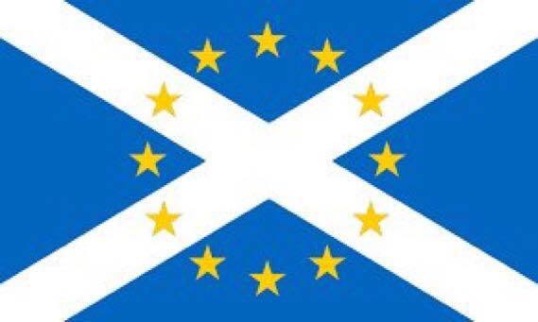Waking up is daunting just now. I planned to stop taking my phone to bed with me at night this year. I even bought a cheap radio alarm clock – remember those? And yet my phone is the first thing I reach for – not to see what my friends are up to, not to see who’s in a relationship, out of a relationship or who has liked my recent pictures on Facebook but to check what the hell Trump and May are up to now.
I haven’t blogged for a wee while, I went to see Paul Kavanagh – Wee Ginger Dug speak in Inverness before Christmas. He was great – witty, funny and insightful. He said that there is no such thing as writers block – just “Can’t be arsed”. I went home and managed to write something. I am finding just now that it isn’t so much “writers block” as that I am overwhelmed by the tidal wave of appalling, depressing, disappointing, head shaking things that are happening. It’s not so much that I can’t be arsed, as I have no idea where to start because there is so much awful stuff happening that I am a bit overwhelmed. In addition, if I start writing I’m not sure that I will be able to stop and I have a life, a job, a family, hobbies, studies, obligations to meet. I feel like I would need to be writing full time to even stand a chance of covering all the things that I feel anger, sadness, horror, indignation or incredulity at – the list goes on and on. Dragging me down so that I find myself shouting at the television once again. I am finding it harder and harder not to say “I told you so” when I hear people who voted No to Independence and who voted to leave Europe speak about how they didn’t think that meant Scotland would be side-lined so much; they didn’t think that the UK would leave the single market; they thought there would be more money for the NHS. I have never been one to cast blame around but even I have been struggling with this. And I turn to my laptop to write and I don’t even know where to start.
My daughter is seven. She is a darling – a sweet child who loves her cuddlies, having her straight hair curly and wearing her favourite party dress and her sparkly shoes but she is also developing a no nonsense personality with a rod of steel running through her. She is beginning to find the wittiest comebacks and the sharpest putdowns to the teasing that her big brothers (27, 26 and 21) subject her to as their only sister and the youngest child. Trying to get the ball off her big brother who at 6’2 was holding it high up out of her reach, she realised that a punch to the belly would be effective in retrieving it for her and she was right. Off she went with her prize to play with the dog. I look at her sometimes, especially when I see things like the video of Tasmina Ahmed Sheik reading out the insulting and offensive responses to her appearance on Question Time, and I wonder what my girl will have to deal with growing up today. It makes me worried and fearful and bloody disappointed.
Last week – in the midst of the seemingly endless stories about Trump and his executive orders she brought home some work from school, which she completed last term. Amongst the maths work and the pictures, was a sentence she had drawn in bubbly coloured in writing and cut out of paper in a wavy sort of way. It read
“Bad things can happen but good people can help”
Looking at this, I asked her, “Where did you get this from?” and she said “Out of my head” shrugged and went off to play.
I looked at it for a long time. I put it up behind the sofa – propped up where I can see it and I kept looking at it. I put it in my handbag and I took it out and looked at it for a wee while. I think I had forgotten. Then over the weekend, several things happened.
Firstly, it was our annual Burns Party. We do this every year in our house. It’s a great night, usually with around the 70 people mark; there is music and speeches and toasts and singing and haggis, neeps and tatties. There are burns songs – all the ones you would imagine, there are Scottish songs, there is ALWAYS Zombie, and an a capella version of Bohemian Rhapsody that is legendary, a Lancashire dialect poem in my sadly disappearing accent, and a Rattling Bog. It goes on until the not so wee small hours and then breakfast is offered to all those that stay around or return to tidy up. We have been doing it for 11 years. The people who come to our party are from all walks of life. They come from all backgrounds and are all ages from children to grandparents. We have friends from Scotland, England, Wales, and Ireland, from Spain, Poland and over the years from many other places. They share our food, our haggis, neeps and tatties and they sing their own favourite songs or play their own instruments or even play our old piano.
It’s always good craic, but this year I was struck by how much love I felt in the house. People who meet up once every 12 months and have been doing so for five, ten years greeting each other with a hug, chatting like they saw them last week and new friends being scooped up and encouraged to join in. My burly husband introducing everyone to a Lyons Hug – sometimes to their slight surprise – the warmth, the smiles and the good humour of everyone. Not a cross word, in fact we have never had a cross word in all the years we have been doing this. I thought about my daughter’s picture and I smiled. I think I had forgotten how much people love and care for each other, I think I had forgotten that I know such good people.
Secondly, Trump carried out his #MuslimBan. I woke on Sunday Morning – without a hangover – to find that during the night a Glasgow Vet who had been a victim of this appalling policy had her costs met by a crowd funder set up by my wonderful sisters at Women for Independence. I have been involved with Women for Indy from the very start and was a member of their executive until last November. I think I had forgotten how much positivity and good we do. I think I had forgotten that we actually make a difference to individuals like Hamaseh Tayari; to policies like those on women’s justice; to the established media like the BBC by challenging the male dominated political commentary. I think I had forgotten that I know such good people.
Yesterday I met with a group of women with lived experience of mental illness that I have been supporting over the last year or so. Several of the members are experiencing difficulties, emotional trauma, ill health, practical barriers to do with benefits and services and yet there they were, supporting each other even through their own pain. I think I had forgotten how strong and supportive these women are – how much of a difference their support makes to all of them. I think I had forgotten that I know such good people.
Finally, last night all over Scotland, all over the UK, all over the world people put on their coats, wrote slogans on placards and stepped outside to protest at Trumps ban and our government’s reaction (or lack of) to it. The protest in Inverness started to ping onto my Facebook page about 4pm and I couldn’t go along because I run a Rainbows group on Mondays at 6, but there in the pictures from Inverness, from Glasgow and Edinburgh, from elsewhere were faces I know, faces I care about – people I am proud to call friends. I think I had forgotten that people are willing to take action when something angers and horrifies them. I think I had forgotten that I know such good people.
And that’s a lesson for me. In amongst all this shit, in amongst the head shaking that I do, the voices of hate that we see everywhere, the ridiculous behaviour of our elected and unelected politicians, the breath holding that many of us are doing over Brexit and a possibly second indy ref, there are people who are prepared to stand up and say this is not on. People who are saying “you are wrong” and who are standing up for others and for what is right.
It is what we all need to do. Many of you may be feeling as overwhelmed as I do. We need to stand up and be counted. We need to remember that we are not alone in this – that, together with others, our voice is loud enough to drown out the voices of hate and division. We need to remember that across political parties, across the Indy debate – yessers, no’s or don’t knows, those for in, or even out of Europe, there ARE people who are standing up and saying that this is not how we do things in Scotland. They are saying that this is not how we think about people in Scotland and that this is not what we want here in Scotland. That is how we will win a stronger, better future and it is how we will take people with us. It is how we will change people’s minds. This is how we will be those good people my wee girl wrote about.
I say in my blog introduction that I want to change the world – I think I had forgotten that. My wee girl, the people at my party, my Women for Indy Sisters, the women at the support group, the protesters have reminded me that “Bad things can happen but good people can help”. I’m going to make damn sure that I keep that at the front of my mind and speak up, speak out and speak loudly to ensure that my voice is added to all the other good people who are helping. I may not change things by myself but I don’t have to because together, we surely will.
Posted in
Family,
Friendship,
Inspiration,
Just me,
Politics,
Scottish Independence And Referendum,
Trump,
Uncategorized and tagged
#brexit,
#fairersociety,
#goodpeople,
#indyref,
#indyref2,
#muslimban,
#muslimbanprotesters,
Trump


